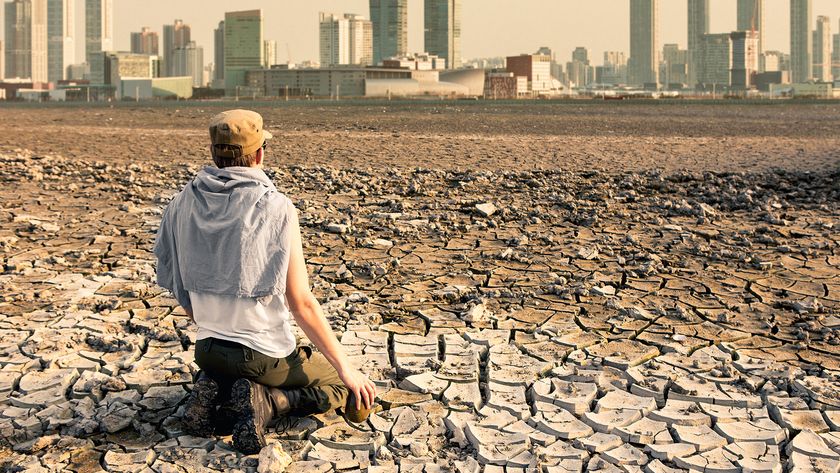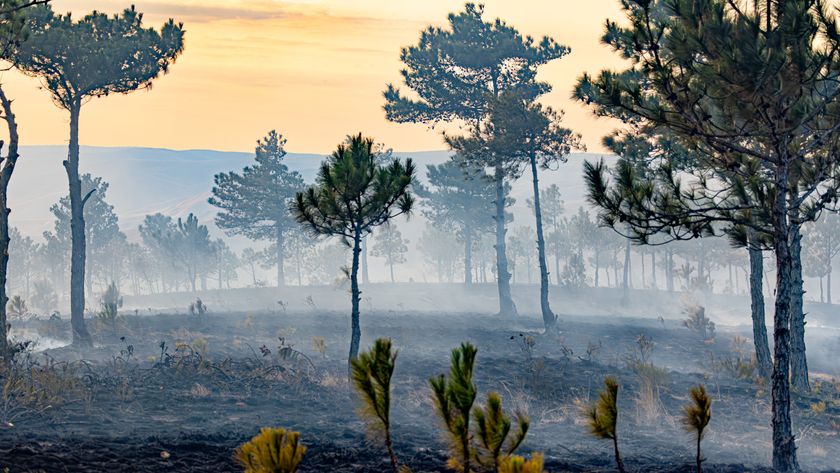Undecided Voters Care About Global Warming, Report Finds

Only about 7 percent of likely voters have not yet decided whether they will support Barack Obama or Mitt Romney in the 2012 election, a new national survey finds. But on the topic of climate change, at least, these undecideds look more like Obama supporters than Romney voters.
Undecided voters are more likely than Romney voters to see climate change as an important issue, and their desire for government action approaches levels seen in Obama voters. What's more, undecideds are as likely as Obama supporters to believe that global warming is happening and that humans are causing it.
"We were surprised to look at how undecided voters broke on this issue, that they were much more similar to Obama voters than they were to Romney voters," study researcher Anthony Leiserowitz, the director of the Yale University Project on Climate Change Communication, told LiveScience.
The new survey queried a nationally representative sample of 1,061 American adults, who filled out an online questionnaire on their voting plans and their climate-change beliefs. People chosen to be on the survey panel who did not own a computer or have an Internet connection were given one, ensuring that older and poorer Americans were not left out of the sample.
For Romney and Obama voters, the margin of error of the findings is plus or minus 5 percentage points. For undecided voters, the margin of error is plus or minus 11 percentage points.
Sixty-one percent of the undecided voters said they see global warming as an "important issue" they'll consider when making their choice. Seventy-five percent of Obama supporters said the same, as did 32 percent of likely Romney voters. In many ways, undecided voters match likely Obama voters with their climate-change concern: 80 percent believe the globe is warming, compared with 86 percent of Obama voters. (In contrast, 45 percent of Romney voters accept that global warming is happening.) [10 Climate Myths Busted]
Similarly, 65 percent of both undecideds and likely Obama voters say that global warming is driven by human activities, a statement with which only 27 percent of Romney voters agree. And 64 percent of undecideds think the president should do more to combat climate change, matching the 61 percent of Obama voters who feel the same.
Sign up for the Live Science daily newsletter now
Get the world’s most fascinating discoveries delivered straight to your inbox.
Only 35 percent of likely Romney voters think the president should do more about global warming, and 47 percent say he should do less.
Likely Romney voters are also less likely than Obama supporters to say the United States should decrease fossil-fuel use in the future (38 percent of Romney voters compared with 55 percent of undecided voters and 65 percent of likely Obama supporters). The survey turned up one area where Americans are in broad agreement: alternative energy. Eighty-five percent of Obama supporters, 83 percent of undecideds and 73 percent of likely Romney voters say the United States should use more renewable energy sources.
The results mesh with earlier surveys that find Democrats more receptive to issues of climate change than Republicans, in part because of political polarization and the association of Democrat Al Gore with the issue, Leiserowitz said.
Much of liberals' support for renewable energy likely comes from concern about climate change, Leiserowitz said. Nevertheless, many Republicans support alternative energy, as well, as a way to solve America's problem of dependence on foreign oil, among other concerns, he said.
"There are many roads to Damascus," Leiserowitz said. "Different people can come to support the exact same policy for very different reasons."
Follow Stephanie Pappas on Twitter @sipappas or LiveScience @livescience. We're also on Facebook & Google+.

Stephanie Pappas is a contributing writer for Live Science, covering topics ranging from geoscience to archaeology to the human brain and behavior. She was previously a senior writer for Live Science but is now a freelancer based in Denver, Colorado, and regularly contributes to Scientific American and The Monitor, the monthly magazine of the American Psychological Association. Stephanie received a bachelor's degree in psychology from the University of South Carolina and a graduate certificate in science communication from the University of California, Santa Cruz.











